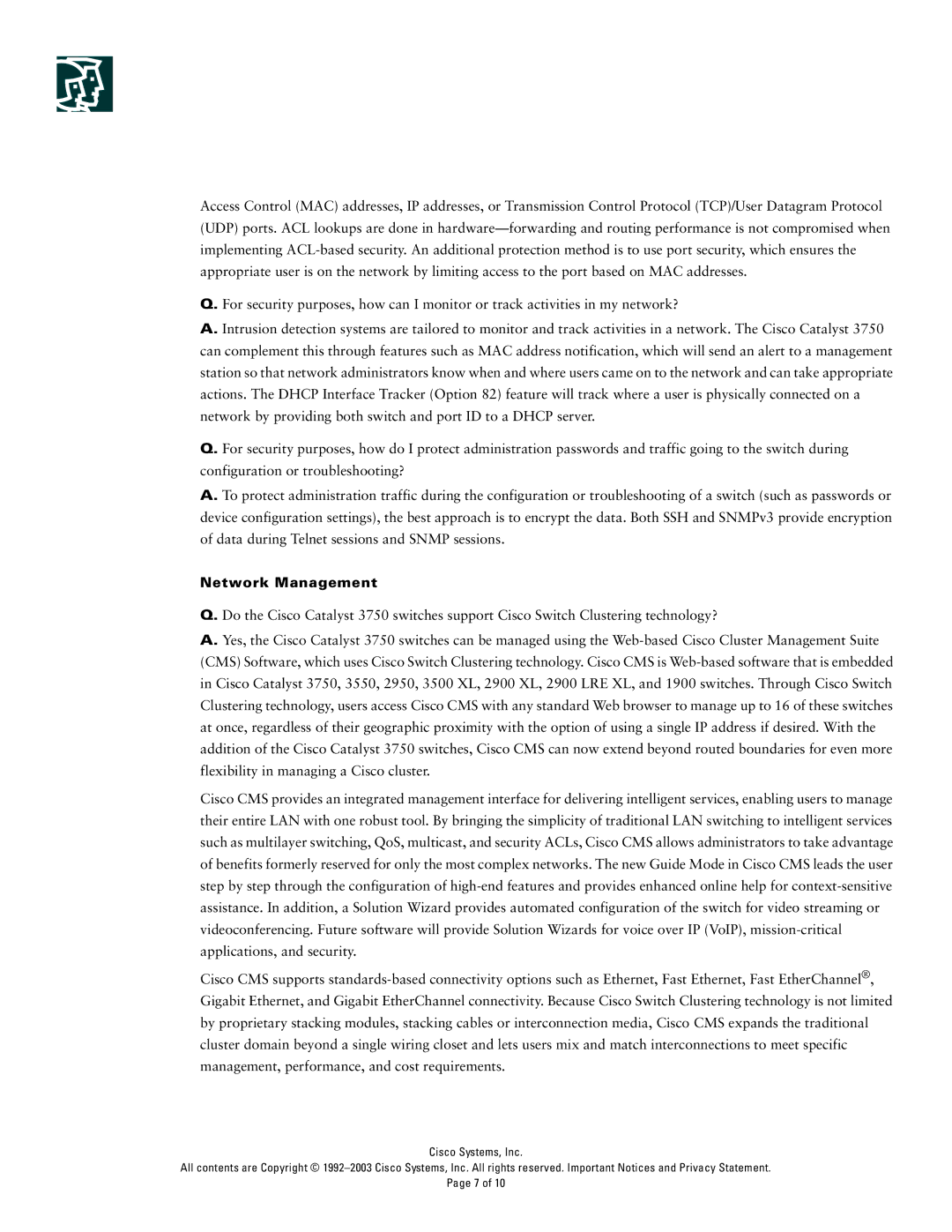Access Control (MAC) addresses, IP addresses, or Transmission Control Protocol (TCP)/User Datagram Protocol (UDP) ports. ACL lookups are done in
Q. For security purposes, how can I monitor or track activities in my network?
A. Intrusion detection systems are tailored to monitor and track activities in a network. The Cisco Catalyst 3750 can complement this through features such as MAC address notification, which will send an alert to a management station so that network administrators know when and where users came on to the network and can take appropriate actions. The DHCP Interface Tracker (Option 82) feature will track where a user is physically connected on a network by providing both switch and port ID to a DHCP server.
Q. For security purposes, how do I protect administration passwords and traffic going to the switch during configuration or troubleshooting?
A. To protect administration traffic during the configuration or troubleshooting of a switch (such as passwords or device configuration settings), the best approach is to encrypt the data. Both SSH and SNMPv3 provide encryption of data during Telnet sessions and SNMP sessions.
Network Management
Q. Do the Cisco Catalyst 3750 switches support Cisco Switch Clustering technology?
A. Yes, the Cisco Catalyst 3750 switches can be managed using the
Cisco CMS provides an integrated management interface for delivering intelligent services, enabling users to manage their entire LAN with one robust tool. By bringing the simplicity of traditional LAN switching to intelligent services such as multilayer switching, QoS, multicast, and security ACLs, Cisco CMS allows administrators to take advantage of benefits formerly reserved for only the most complex networks. The new Guide Mode in Cisco CMS leads the user step by step through the configuration of
Cisco CMS supports
Cisco Systems, Inc.
All contents are Copyright ©
Page 7 of 10
